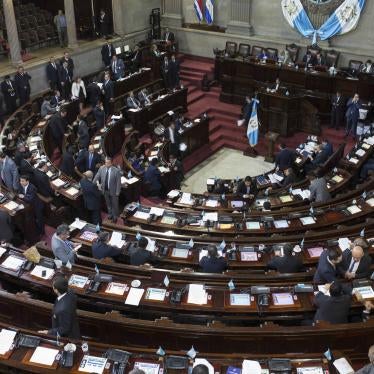On February 11, Mexico’s Guanajuato state issued Fausto Martínez, a non-binary person originally from Celaya, Guanajuato, a new birth certificate with a third gender. The action marks a significant step in legally recognizing a third gender in Mexico.
In November 2021, Martínez petitioned a federal court to recognize their gender identity after the state Civil Registry denied their request for a corrected birth certificate. Two months later, a judge granted Martínez’s request for an injunction (amparo) and ordered the Civil Registry to issue them a new birth certificate with a third gender.
Amicus, a civil society organization that represented Martínez, said they are not aware of any other ruling in Mexico recognizing a non-binary person’s gender identity. “What is not named does not exist. Legal recognition establishes that [non-binary] people have rights. This is a great achievement,” Martínez told Human Rights Watch.
Around the world, legal gender recognition is gaining pace. While governments often recognize legal changes to Male or Female, over a dozen countries, such as Argentina, Malta, India, Nepal, and the United States, already allow for non-binary documents at the national level. The Netherlands is planning to scrap gender from identity documents altogether.
The International Civil Aviation Organization, which sets global regulations for passports, allows for three sex categories: female, male, or “X” for unspecified.
While the Guanajuato court’s ruling only applies to Martínez, it is an important milestone that comes on the heels of Mexican Supreme Court decisions in 2018 and 2019 in favor of trans applicants seeking to change their gender markers.
Ninteen out of Mexico’s 32 states have legal gender recognition procedures allowing individuals to change their Male or Female gender markers, but none expressly provide for a gender-neutral option.
In states like Guanajuato, which does not have specific laws or procedures allowing for legal gender recognition, people seeking to change their gender markers often endure lengthy and costly court proceedings. They can also travel to other states where the process is allowed but may have reciprocity issues in their home state, often leading to further judicial proceedings.
In 2017, the Inter-American Court of Human Rights called on governments to establish efficient and inexpensive legal gender recognition procedures. The International Covenant on Civil and Political Rights, which Mexico has ratified, requires that states fully recognize residents’ gender identity.
While Martínez’s case is significant, all Mexican states, including Guanajuato, should allow their trans and non-binary citizens to be recognized before the law.











